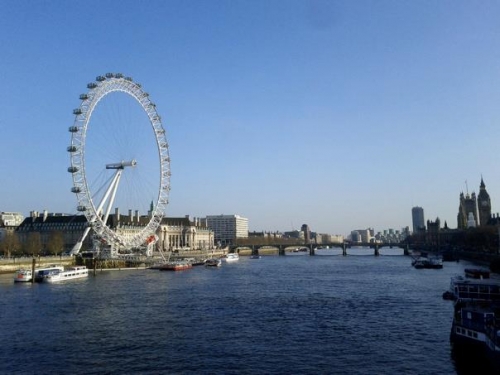Surveys
Number Of UHNW Individuals In London Set To Soar 17 Per Cent

The number of ultra high net worth individuals in London is set to jump 17 per cent to 4,940 by 2023, more than the figure forecast for Paris, Geneva and Zurich combined, figures show.
The number of ultra high net worth individuals in London is set
to jump 17 per cent to 4,940 by 2023, more than the figure
forecast for Paris, Geneva and Zurich combined, according to the
latest research from estate agents Knight Frank.
The Knight Frank European Cities Review revealed that Munich is
forecast to see the largest increase in its population of wealthy
individuals over the next decade with an increase of 48 per cent
to 1,651 UHNW individuals, followed by Moscow with 33 per cent
(1,096 HNW individuals) and Vienna with 26 per cent (483 UHNW
individuals).
Of the smaller cities, Vienna and Barcelona are forecast to see a
significant increase in ultra high net worth individuals, up by
26 per cent and 23 per cent respectively.
The survey found that prime markets are recording stronger price
growth. Since 2009, the average annual change in prime property
prices across luxury European city markets increased from -6.1
per cent to 2.1 per cent in the first quarter of 2014.
Dublin and Madrid’s turnaround in luxury price growth is most
evident, while Monaco, Paris and Moscow have also seen an
improvement. Some mainstream markets are catching up, with prices
in the UK, Russia and Switzerland outperforming luxury prices in
their key cities. On average luxury prices rose 2.1 per cent,
while mainstream national prices rose 0.6 per cent in the year to
March 2014
The survey showed that cities are becoming increasingly important
to their national economies. Dublin accounts for 48 per cent of
national GDP, while London is now responsible for generating 22
per cent of the UK’s GDP, up from 19 per cent in 1997.
The economic landscape is also picking up, with Munich, Rome and
London forecast to see the largest rise in GDP growth in 2014,
compared with 2008.
Kate Everett-Allen, head of international residential research at
Knight Frank, said the lack of new supply, a widening pool of
buyers and the movement of wealth away from geopolitical tension
is likely determine the future performance of Europe’s luxury
residential markets.
“Key to attracting the world’s rich will be accessibility and
infrastructure. New flight routes or the introduction of a winter
timetable from key buyer destinations can be sufficient to have a
significant impact on demand levels,” said
Everett-Allen.
“Although wealth creation is forecast to be strongest in emerging
markets in Asia and Latin America, the appeal of Europe’s luxury
bricks and mortar will – due to its history, diverse cultures,
architecture and climate – mean it will remain the location of
choice for the world’s wealthy,” she added.